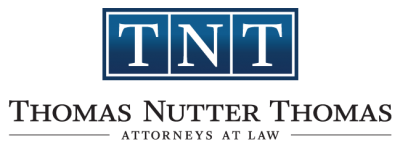HURRICANE IAN HELP - CALL NOW!
Perez-Thomas, PA
For More Information About Our Law Firm
Visit PLTLawyers.com
Has your insurance company denied, underpaid, or delayed your hurricane IAN claim?

HELPFUL TIPS
CONTACT YOUR INSURANCE COMPANY:
First, contact your insurance company and/ or your insurance agent to report the loss. You have an obligation to promptly notify the insurance company of the loss even if you are unsure the damage will exceed the deductible. Insurance companies often process claims in the order they are received. This makes it imperative to quickly report the loss to avoid significant delays in the processing and adjustment of your claim.
If you are unsure how to report the claim to the insurance company, contact your insurance agent to obtain the proper contact for reporting the claim.
REQUEST A COPY OF YOUR POLICY:
It is important that you obtain a certified copy of your insurance policy. If you do not have a copy, make a written request for a certified copy of your policy when you report the damage to your insurance company. Your insurance company is obligated to provide you with a copy of your policy upon request. When you make a request for the policy, be sure to specify that you are requesting a certified policy, which means the insurance company is certifying that the copy provided to you is a sworn and true copy of your policy.
The insurance policy provides the background of coverages, exclusions, loss payment terms, and various conditions you must comply with in order be paid for your claim. At the front of your policy, there should be pages called “Declarations” which contain things like your property address, Policy Number, a list of endorsements and coverages, information regarding your deductible(s), and your policy limits.
PROTECT THE PROPERTY FROM FURTHER DAMAGE AS BEST AS YOU CAN:
Protect the property from further damage. You have an obligation to take reasonable steps to minimize, or mitigate, the loss after it happens. This may include doing things to prevent additional water intrusion into your home by placing tarps or other coverings over openings in your roof, windows, or walls, keeping your air conditioner running (if you have power) to prevent the onset of mildew or mold, and other reasonable steps to prevent additional damage. Damaged property which presents a health hazard or which may hamper local clean-up operations should be disposed of. Most policies will reimburse you for any costs your incur.
In most cases, you should not perform any significant permanent repairs (vs. temporary repairs needed to prevent additional damage) prior to reporting the claim to your insurance company and providing them with an opportunity to inspect and document the damage. Otherwise, the insurer may refuse to reimburse you for the full amount of the repairs.
PROVIDE REQUESTED INFORMATION TO THE INSURANCE COMPANY:
Other than promptly notifying your insurance company of the loss and taking reasonable steps to prevent additional property damage, most of your duties under the policy involve providing requested information and documentation and cooperating with the insurance company in its investigation of the claim. It is important to cooperate with the insurer and to provide this information/documentation as best as you can.
The insurance company will likely request information and documentation during the claim process. This may include written or verbal requests that should be reasonably related to the claim.
The insurance company may ask for a recorded statement. This is a statement that is recorded and is normally taken by the insurance adjuster over the phone or in person. The adjuster will likely ask about the damage, when and where it occurred, and for a general description of the damage (roof damage, interior water damage, broken windows, damaged personal property, etc.). The insurance company is required to obtain your permission prior to recording any statements you make.
The insurance company may also ask you to submit to an Examination Under Oath (EUO). This is more formal than a recorded statement and should be taken seriously. During an EUO, you will provide in-person testimony upon verbal questions by the insurance company in the presence of a court reported that will record every word of the EUO. For more information on EUOs, see the FAQs section below.
CREATE A RECORD OF THE LOSS:
It is a good idea to photograph and video the damaged property (including personal property/contents), make an inventory of damaged items, and maintain receipts for all costs related to repairs, relocation, or other costs associated with the loss. This is helpful to establish a timeline and scope of the loss. It may be necessary to continue these steps even after a claim has been reported.
BE CAREFUL ABOUT ENTERING INTO A CONTRACT WITH A REPAIR COMPANY:
If you are working with a repair company regarding your loss, use caution before entering into any agreements regarding your claim. Some companies may ask you to sign an “assignment of benefits” document prior to performing repairs to your property. This may result in you forfeiting any right to dispute the insurance company’s payment of your claim. Be certain to read any agreements/contracts before signing them, and consult with a lawyer if you have questions. \
CONSULT WITH AN ATTORNEY:
If, at any point during the claim process, you feel uncomfortable or unsure about what you should be doing, if you are asked to provide a recorded statement or submit to an Examination Under Oath, or if you are not satisfied with the Insurance company’s response to your claim, it is a good idea to consult with an attorney, particularly, in the event of the following:
- Unreasonable requests for documents or information
- Unreasonable delays in inspecting the property, communicating with you, or making a claim decision
- Requests for an Examination Under Oath
- Denial of the claim, including partial denials
- Insufficient payment of the claim
- Withholding payment for all or a portion of the claim. This is particularly concerning if the insurance company is withholding payment for a portion of the claim until and unless you agree to resolve the entire claim.
- Refusal to pay for temporary living expenses in the event you have to temporarily move out of your home
- Requests that you sign a release as a condition to payment of the claim
Perez- Thomas, PA
WE CAN HELP
We have handled insurance claims for over a decade.
Call our office at
SERVING ALL OF FLORIDA
Including Key West, Bonita Springs, Naples, Polk, and Marion Counties
Hurricane-Lawyers.com
Perez-Thomas, PA
